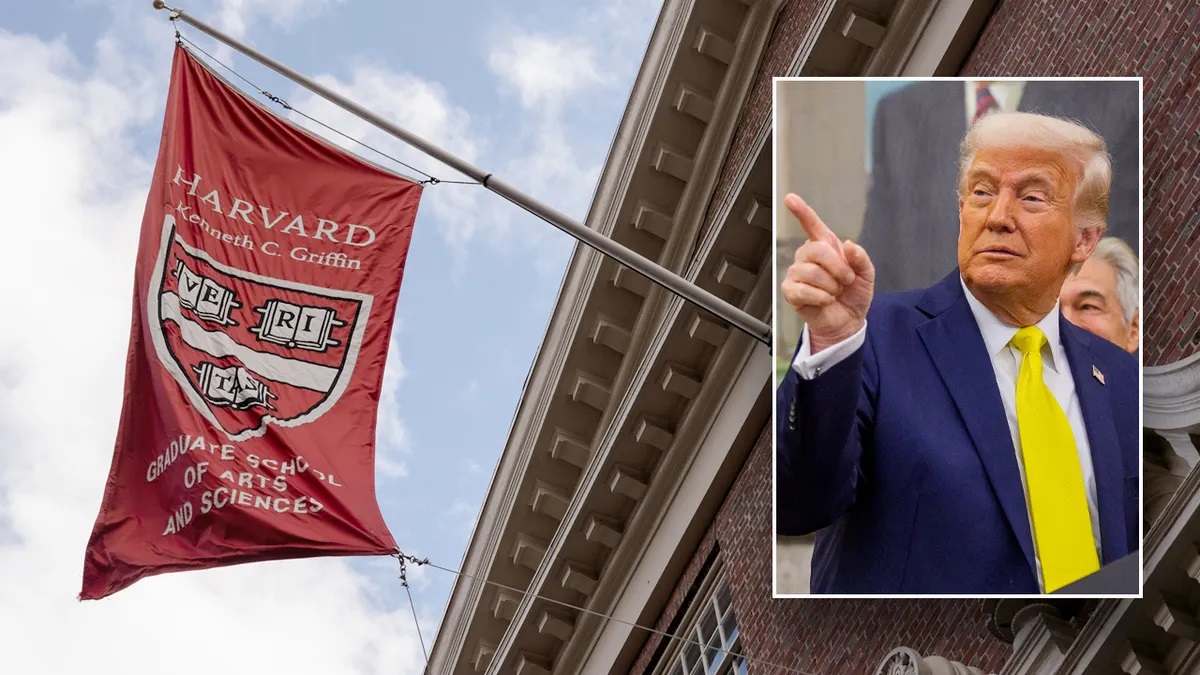On Wednesday, June 4, 2025, the White House announced that former President Donald Trump had signed a proclamation that restricts student visas at Harvard University.
According to The Guardian, the directive will initially suspend these entries for a period of six months, citing national security concerns as the primary justification.
Trump argued that allowing Harvard to continue enrolling foreign students poses a risk to U.S. interests.
The move marks a significant escalation in the Trump administration’s ongoing conflict with the Ivy League institution.
This has reportedly been a frequent target due to its global reputation and substantial international student population, around 25% of its total enrollment.
In the proclamation, Trump wrote:
“I have determined that the entry of the class of foreign nationals described above is detrimental to the interests of the United States because, in my judgment, Harvard’s conduct has rendered it an unsuitable destination for foreign students and researchers.”
He further instructed the State Department to consider revoking academic and exchange visas for current Harvard students who fall under the order’s defined criteria.
Harvard responded strongly, calling the proclamation “yet another illegal retaliatory step” and a violation of its First Amendment rights.
In a statement, the university emphasized its commitment to supporting international students.
It indicates that it would continue to stand by them despite federal pressure.
A key reason cited in the proclamation for the restriction was Harvard’s alleged ties to China.
It accused the university of engaging in research that could contribute to the modernization of China’s military.
Trump’s directive also labelled Harvard as a popular institution among members of the Chinese Communist Party (CCP).
It referenced that Chinese President Xi Jinping’s daughter studied there in the early 2010s.
Additionally, the proclamation mentioned a program from the early 2000s, “China Leaders in Development”, which Harvard co-hosted with Beijing’s Tsinghua University.
This initiative aimed to train Chinese government officials and has now come under scrutiny.
This comes as part of the administration’s broader criticism of the university’s international engagements.
Many students, especially those from China, have expressed dismay over the decision.
One Chinese undergraduate who had received an offer to pursue a master’s degree at Harvard voiced concern, stating:
“I don’t think this is going to benefit U.S. universities at all.
“It’s causing normal people, us students, a lot of anxiety.”
The student requested anonymity due to the sensitivity of the issue.
The move is part of a broader struggle between Harvard and the Trump administration.
Harvard, the oldest and wealthiest university in the U.S., has faced an array of financial and legal challenges orchestrated by the federal government.
These include freezing billions of dollars in research funding and threatening to revoke the university’s tax-exempt status.
Harvard has argued that these actions are retaliatory.
It says they stem from its refusal to comply with the administration’s attempts to influence its governance, academic content, and ideological stance.
A recent flashpoint occurred when Homeland Security Secretary Kristi Noem, on May 22, announced the immediate withdrawal of Harvard’s certification to host foreign students.
It referred to students under the Student and Exchange Visitor Program (SEVP).
This decision was promptly challenged in court, with a judge in Boston temporarily blocking the action.
Just before a scheduled court hearing, the Department of Homeland Security reversed course.
It opted to pursue a longer administrative process to review the university’s certification.
Trump’s new proclamation utilizes a different legal basis than the DHS action.
It cites specific sections of the Immigration and Nationality Act that give the president authority to bar entry to foreigners whose presence may harm U.S. interests.
The administration has continuously intensified pressure on Harvard.
It has slashed over $2.6 billion in federal research funding and threatening to cancel all government contracts with the university.
The latest directive directly impacts Harvard’s roughly 7,000 international students, who comprise up to 50% of enrollment in several graduate programs.
A White House fact sheet accompanying the proclamation stated that the president “wants our institutions to have foreign students.”
However, it added that these students “should be people that can love our country.”
The order also asserted that Harvard had a “history of concerning foreign ties and radicalism,” particularly with nations considered adversaries, such as China.
Beyond Harvard, the White House reiterated its intention to “aggressively revoke” visas for Chinese students across U.S. universities.
This covers especially those associated with the Chinese Communist Party or involved in sensitive academic fields.







